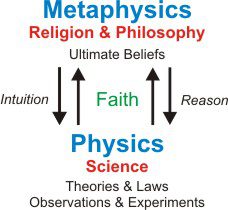 I had the opportunity to speak on Sunday at a local church. The pastor is a friend I’ve known for years – since our kids were toddlers. The topic for the day was science and Christian faith. What does it mean to be a believing scientist, and to stay a believing scientist? After all, there is a common idea in our culture that science and Christian faith are locked in conflict. We can embrace one or the other, not both. Coming off three marvelous days at the BioLogos Christ and Creation Conference there was plenty of material running through my head ready to share.
I had the opportunity to speak on Sunday at a local church. The pastor is a friend I’ve known for years – since our kids were toddlers. The topic for the day was science and Christian faith. What does it mean to be a believing scientist, and to stay a believing scientist? After all, there is a common idea in our culture that science and Christian faith are locked in conflict. We can embrace one or the other, not both. Coming off three marvelous days at the BioLogos Christ and Creation Conference there was plenty of material running through my head ready to share.
To look at this question I’d like to start where we as Christians should always start – with Scripture.
In the Gospel of Mark we read: (Mark 12:28-34)
One of the teachers of the law came and heard them debating. Noticing that Jesus had given them a good answer, he asked him, “Of all the commandments, which is the most important?”
“The most important one,” answered Jesus, “is this: ‘Hear, O Israel: The Lord our God, the Lord is one. Love the Lord your God with all your heart and with all your soul and with all your mind and with all your strength.’ The second is this: ‘Love your neighbor as yourself.’ There is no commandment greater than these.”
“Well said, teacher,” the man replied. “You are right in saying that God is one and there is no other but him. To love him with all your heart, with all your understanding and with all your strength, and to love your neighbor as yourself is more important than all burnt offerings and sacrifices.”
When Jesus saw that he had answered wisely, he said to him, “You are not far from the kingdom of God.” And from then on no one dared ask him any more questions.
Love the Lord your God with all your heart, understanding and strength. This is an important part of our calling as Christians. It means that being a Christian and a scholar, whether in science or social science or humanities should not be a matter of compartmentalizing … weekday scientist, weekend Christian and never the twain shall meet. But this can be easier said than done.
There was a time in graduate school when I wasn’t sure it was possible to be or stay a believing scientist and scholar; the questions loomed large and answers were few and far between. Often it wasn’t even clear where answers might be found. Quite frankly, most of the resources from a Christian perspective did not take science or scientists seriously, with respect. Rather they were strangers to be ridiculed and dismissed. I distinctly remember one Sunday, back from graduate school at Berkeley. A movie from an apologetics group was shown in the evening service (back in the day when Sunday evening services were common). Rather than dealing with the very real questions raised by modern science – geology, evolutionary biology, neuroscience, even Chemistry – the film used a rather funny sequence with hapless scientists in white lab coats performing meaningless tasks with mice and drawing ridiculous conclusions. This was not helpful.
Today there are many resources available to work through the issues at the intersection of science and Christian faith. I have been lucky enough to be involved in some of these discussions. I’d like to share five reflections on science and Christian faith.
The first is that there is a wonderful harmony between science and Christian faith. There are no unavoidable conflicts, places where this harmony can’t be found. There are questions for which we do not, today, have answers – but this is nothing new.
 This leads to the second, we need humility. We need to be careful when we draw conclusions that are away from the central point of Scripture. As Christians we need to realize that there are places where science reshapes our understanding of the Bible, but this is nothing new and nothing to fear. St. Augustine (ca. 400 AD) realized the need for this interaction between faith and reason. When he, in his multiple reflections on Genesis, wrote:
This leads to the second, we need humility. We need to be careful when we draw conclusions that are away from the central point of Scripture. As Christians we need to realize that there are places where science reshapes our understanding of the Bible, but this is nothing new and nothing to fear. St. Augustine (ca. 400 AD) realized the need for this interaction between faith and reason. When he, in his multiple reflections on Genesis, wrote:
Usually, even a non-Christian knows something about the earth, the heavens, and the other elements of this world, about the motion and orbit of the stars and even their size and relative positions, about the predictable eclipses of the sun and moon, the cycles of the years and the seasons, about the kinds of animals, shrubs, stones, and so forth, and this knowledge he holds to as being certain from reason and experience. Now, it is a disgraceful and dangerous thing for a nonbeliever to hear a Christian, presumably giving the meaning of Holy Scripture, talking nonsense on these topics; … If they find a Christian mistaken in a field which they themselves know well and hear him maintaining his foolish opinions about our books, how are they going to believe those books in matters concerning the resurrection of the dead, the hope of eternal life, and the kingdom of heaven, when they think their pages are full of falsehoods on facts which they themselves have learnt from experience and the light of reason? (Ch. 19 The Literal Meaning of Genesis)
Augustine goes on with some rather harsh words for Christians who use Scripture to defend utterly foolish and obviously untrue statements about the natural world.
Our investigations of God’s creation have been shaping our view of cosmology from the beginning. Few Christians today believe in a flat earth, with pillars below and storehouses for snow and hail. We recognize phenomenological language in Scripture and don’t fret the ancient cosmology found there. But we recognize this as a phenomenological understanding because our experience of God’s creation has grown. We don’t worry about the fact that humans, created in the image of God, live on the other side of the world. Augustine found antipodians, people with feet opposite to his, contrary to Scripture and wrote about it in City of God. Martin Luther found the ideas of Copernicus troubling, but the Lutheran church has no trouble with the earth orbiting the sun today. We need to learn from the insights and mistakes of those who came before us. We certainly shouldn’t jump on every scientific bandwagon, but with patience listen and study and learn. God is the author of creation. There is nothing to fear.
 Third, we need to understand the context of the Old Testament. Old Testament scholars like John Walton and Tremper Longman III are helping us learn how to read the Old Testament through ancient Near-Eastern eyes. Although Genesis and the rest of the Old Testament is for us, it wasn’t originally written to us. We understand the message far more clearly as we understand the culture and context better. We need to come to grips with this idea. At the meeting this week Tremper told of an experience where after talking about the context of the Old Testament, he was confronted by a devout Christian who rather emphatically told him he didn’t need all this ancient context. “All I need is the Bible, it is clear to all who read it.” Tremper handed him his bible, his Hebrew bible, and told him to go to it. Genesis wasn’t written in English, or into a modern context. (The image to the right is of the first three days of creation in Genesis 1.)
Third, we need to understand the context of the Old Testament. Old Testament scholars like John Walton and Tremper Longman III are helping us learn how to read the Old Testament through ancient Near-Eastern eyes. Although Genesis and the rest of the Old Testament is for us, it wasn’t originally written to us. We understand the message far more clearly as we understand the culture and context better. We need to come to grips with this idea. At the meeting this week Tremper told of an experience where after talking about the context of the Old Testament, he was confronted by a devout Christian who rather emphatically told him he didn’t need all this ancient context. “All I need is the Bible, it is clear to all who read it.” Tremper handed him his bible, his Hebrew bible, and told him to go to it. Genesis wasn’t written in English, or into a modern context. (The image to the right is of the first three days of creation in Genesis 1.)
We need faithful Old Testament scholars who dig into the language and context and help us understand. Old Testament scholars like John and Tremper wrestle with genre and context of the text. The early chapters of Genesis are best viewed as theological narrative or theological history as Tremper Longman prefers. They relate historical truths, God created the world, he instituted marriage, and human-kind has rebelled against God. But they tell this not as a modern scientific history of creation. The ancient audience didn’t have our modern fixation on literal depictions. Parts of Genesis along with other parts of the Old Testament come close to modern histories, but the early chapters of Genesis are not among them. And even in books like Samuel, Kings, and Chronicles we need to understand ancient approaches to history to fully understand the text. Genre is important.
A fourth important point – and this one for all, whether Christian or not. Science cannot disprove Christian faith. Scientific inquiry is limited to the study of the nature and mechanisms of the world. It can answer questions of how and when, but provide only limited answers to the why questions. The following isn’t an original illustration, but one that was used at the conference, and one I’ve heard or read before (I think in one or more of John Polkinghorne’s books):
Consider for example a tea-kettle whistling in the kitchen. Walking into the kitchen you ask why the tea-kettle is whistling. As a physical chemist I can tell you it is because electrical current passing through a resistive element produces heat that is transferred through the copper base of the kettle to the water contained within. Or if on a gas stove we can get into the combustion of natural gas and the thermodynamics of that process. In either case the energy transferred to the kettle causes the random kinetic energy of the water molecules in the kettle to increase until the vapor pressure of the water reaches atmospheric pressure. The increase in pressure caused by the water vapor forces gas through the opening in the kettle produces a density fluctuations in air that propagate to my ear there they are transformed into electrical nerve impulses … you get the idea.
But I could also tell you that the tea kettle is whistling because I wanted a pot of tea and put water on to boil. I drink a lot of herbal tea in the winter. Orange Spice, cinnamon apple, peppermint.
Both explanations are true. The first doesn’t rule out the intentional action on my part … wanting tea and making it happen.
In similar way there can be “why” and “who” explanations behind the scientific explanations for phenomena we observe in the world. One doesn’t rule out the other. Evolution provides a powerful explanatory framework for the diversity of life on our planet. But so does the awesome extravagance of God who created the world through and for Jesus Christ.
The Son is the image of the invisible God, the firstborn over all creation. For in him all things were created: things in heaven and on earth, visible and invisible, whether thrones or powers or rulers or authorities; all things have been created through him and for him. He is before all things, and in him all things hold together. Colossians 1:15-17
It isn’t either “natural” that is, explicable from concepts of science or divine action explicable by reference to God, but can be both of these at the same time.
 Fifth, and last today. We need to be able to identify the difference between scientific conclusions and the metaphysical conclusions that some draw and claim are merely scientific. It was a pleasure to finally meet and speak (too briefly) with Denis Lamoureux last week. I’ve read and blogged about several of his books, most recently Evolution: Scripture and Nature Say Yes. The diagram here is based on his work. Acts of faith, accompanied by both intuition and reason, connect physics and metaphysics.
Fifth, and last today. We need to be able to identify the difference between scientific conclusions and the metaphysical conclusions that some draw and claim are merely scientific. It was a pleasure to finally meet and speak (too briefly) with Denis Lamoureux last week. I’ve read and blogged about several of his books, most recently Evolution: Scripture and Nature Say Yes. The diagram here is based on his work. Acts of faith, accompanied by both intuition and reason, connect physics and metaphysics.
Physics deals with the study of nature. It comes from a Greek word for nature. Science, based on observations and experiments, theories and laws, explores the nature of our cosmos.
Metaphysics moves beyond physics. The Greek preposition “meta” carries the meanings “after,” “behind,” and “beyond.” Therefore, after we have finished our scientific investigations, we inevitably think about metaphysics and ultimate beliefs that are behind or beyond the physical world.
Creation, for example, is a religious belief not a scientific statement. Belief in creation only requires belief in a Creator, not belief in any particular scientific explanation of mechanism. Evolution is a scientific theory – but as such it is neither theist nor atheist. It says nothing about the presence or absence of a Creator. It also says nothing fundamental about purpose or lack of purpose in creation. Our conclusions about purpose are metaphysical.
Christians make an upward step of faith connecting physics to religious belief in a purposeful and designed world. Atheists make an upward step of faith connecting physics to a random and purposeless world. We also all make downwards steps of faith connecting our belief in purpose and design or lack of purpose and design to the scientific observations.
Many of the apparent conflicts between science and Christian faith vanish when we start to dig into the difference between metaphysics and physics.
—————————————————————————————
If you wish to contact me directly, you may do so at rjs4mail[at]att.net
If interested you can subscribe to a full text feed of my posts at Musings on Science and Theology.














